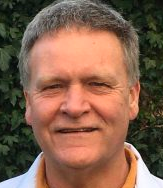Ageing Well
 Most of us, including members of the medical profession, tend to look at increasing stiffness and pain as a natural part of the ageing process and stresses of life. But such stresses may easily be caused by the strain from the compressed way many of us use our bodies in everyday movements. This accelerates the process of ageing. The Alexander Technique has much to offer…
Most of us, including members of the medical profession, tend to look at increasing stiffness and pain as a natural part of the ageing process and stresses of life. But such stresses may easily be caused by the strain from the compressed way many of us use our bodies in everyday movements. This accelerates the process of ageing. The Alexander Technique has much to offer…
From middle age onwards, most of us begin to feel the effects of gravity as if it was an enemy – our spine and joints compress and we become less flexible. With the ageing process, it is easy to find that life becomes more difficult in small unexpected ways. Simple daily activities like getting in and out of a chair, walking up and down stairs, carrying things, reaching for a high shelf or gardening are not as easy as they once were and we become more prone to chronic aches and pains. For the older person, balance and fear of falling becomes an issue.
The physical demands that we take for granted become more difficult as we get older and that is where people need all the help that they can get. Alexander help is particularly appreciated here.
Lessons in the Alexander Technique are gentle and carried out on a one-to–one basis. They help people to stay active. They help restore flexibility, balance and range of movement. Most people, over a series of sessions, find that they begin to move in a more youthful way, which improves confidence and their attitude to the ageing process often becomes more optimistic. No special aptitude or clothing is required.
What People Say:
The Alexander Technique makes a real difference to my often tense and busy life. Its thoughtful approach has made me calmer, improved my concentration and given me a clearer sense of my own wellbeing. I am grateful for it.
Joan Bakewell, 79, Government Tsar for Older People.
Forty years ago, after one of my concerts, Adrian Boult told me that if I continued to conduct like that I’d become a cripple, and that I must take lessons in the Alexander Technique. Today I am still having lessons – as with music, there is no end to the learning process. It affects not only the use of the body, but also one’s views of oneself and one’s behaviour. For the aches and ills that come with the years, the Technique can work miracles.
Sir Colin Davis, Conductor
Neck problems are virtually an occupational hazard for Ear, Nose and Throat surgeons. I had serious problems during my working years, but hoped for relief on early retirement. This was not the case and limitation of cervical (and thoracic) movement became quite an intrusion on my life. Physiotherapy and medication gave only short-term improvement. On being introduced to the Alexander Technique I was somewhat sceptical that anything was going to work, but can only describe the relief gained, and maintained, as quite incredible. General posture has improved and neck mobility has returned to that last experienced more than twenty years ago. What more could one ask for?
Kieran Tobin, M.B, B. Ch, BAO, FRCS(Eng), FRCS(Irl), D.L.O., Senior Surgeon, University College Hospital Galway Ireland. Past President of the Irish Otolaryngological, Head and Neck Society and Past-President of the E.N.T. Section of the Royal Society of Medicine of Ireland.
When I began lessons in the Alexander Technique at 70 , I had a lot of stiffness in my knees and found it almost impossible to get down into a squat.
Almost three years later, I find myself squatting with ease. I don’t even have to think about it.
What pleases me is the realisation that the body can return to ease of movement, even in the elderly.
Sue (Age 73).
Elderly Alexander Technique Teachers in the media:
BBC Radio 4 Woman’s Hour 12 June 2012 – Elisabeth Walker, age 97, interviewed.
The Guardian March 16 2006 – Jeanne Day, aged 80, interviewed.



